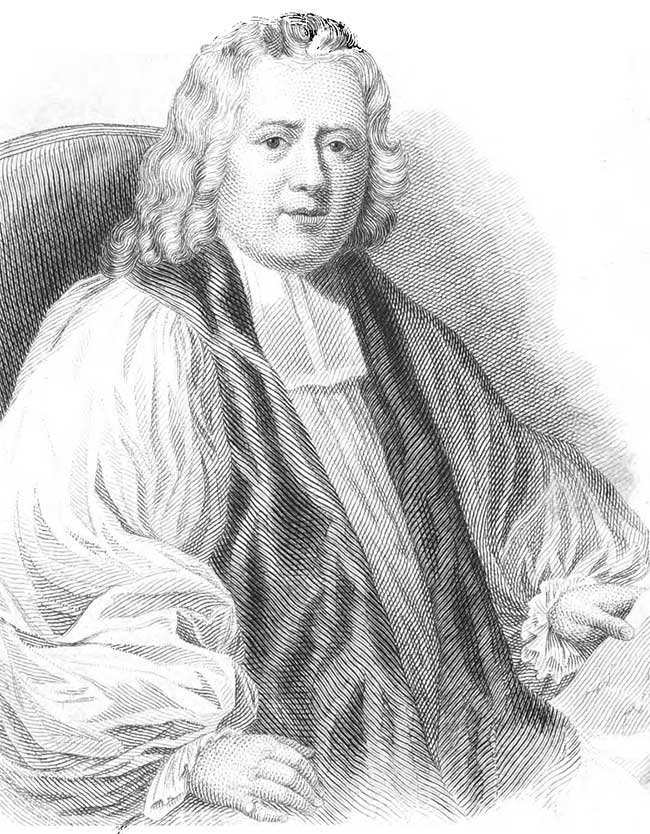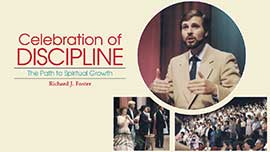BISHOP THOMAS WILSON SET A GOOD EXAMPLE BY GODLY LIVING

[Above: Thomas Wilsom from Richard Hone's Lives of Eminent Christians Vol I. London: John W. Parker, 1839.]
YOUNG LORD STRANGE was about to sign a paper he had not read when his tutor Thomas Wilson dropped some scalding sealing-wax on his fingers. Naturally Strange was angry. Wilson calmed him by explaining he had done it purposely to create in him a lasting memory never to sign any paper he had not first carefully examined. The incident was typical of Wilson’s faithfulness. He had earlier risked his position as chaplain by confronting his employer the Earl of Derby for his careless handling of finances which threatened to ruin many poor creditors. No one else had found the courage. Rather than get angry, Derby had accepted the advice and paid his debtors.
Wilson’s purity, prayers, and faithful admonitions so impressed Derby that he appointed him bishop of the Isle of Man. At first Wilson refused, saying he was not qualified, but Derby believed otherwise and insisted. Wilson became bishop in 1698 and the Earl proved right in his assessment of his chaplain’s character.
The island was so poor that many of its inhabitants lived in sod huts without chimneys or windows. Wilson’s own palace and out-buildings were in ruins. He had to spend £1,400 ($290,000 in 2020 US dollars) to rebuild, most of it from his own revenues. He fenced the grounds, planted trees for fruit and lumber, and laid out a farm. “I find the house in ruins, which obliges me to interrupt my charity to the poor in some measure,” he wrote. However, the reduction was temporary, and by the end of his life he was donating half his income to benevolent causes. Derby offered him a second church position to compensate for his expenses, but Wilson declined. He had vowed never to accept a plurality but rather to personally care for the souls entrusted to him. He was not about to wrench his conscience by going back on such a promise.
Whatever Wilson undertook, he bathed in prayer, including his marriage to Mary Patten which took place the year he was ordained bishop. Their first son died in infancy, but the second became a notable priest and a royal chaplain. A daughter, named for her mother, lived to be thirteen, but another died in infancy. Mary died in the sixth year of their marriage.
Bishop Wilson was beloved for his kindness, his concern for souls, and his gentleness toward those who differed from his theology. Consequently, dissenters and Quakers were willing to worship with him. While at Oxford, he had studied medicine, and he used his knowledge to treat the islanders who often had no other medical assistance.
The islanders spoke Manx, and Wilson went out of his way to provide them with writings in their own language, including Scriptures and the catechism. In his concern for education, he joined Thomas Bray’s Society for Promoting Scripture Knowledge, and established a number of small libraries on the island and required all parents to send their children to school to learn to read English, unless they obtained a dispensation because of exceptional circumstances.
Although entitled to sit in the House of Lords, Wilson refused, saying the church should have nothing to do with the state. Queen Anne offered to make him a bishop in England, but he preferred his small diocese where he felt he could be most useful to God’s kingdom. King George I and Queen Caroline made similar offers and received the same reply. However, he participated willingly in gospel-related entities such as mission societies and a fund to help the widows and orphans of clergymen.
Once he paid a large fine and went to prison for upholding church discipline, having censured the wife of the island’s governor for refusing to obey church law. Confined for two months, he and his curates were treated abusively until the crown reversed the governor’s proceedings, declaring them oppressive, arbitrary, and unjust. Nonetheless, the process and lawsuits cost him £300 ($62,150 US dollars in 2020). The dampness of the prison affected his right hand, making it difficult for him to hold a pen.
He was a man of prayer. One of the many that was recorded went: “May I, O Sovereign Pastor, always so speak, as that my flock may hear and understand me; so converse with them, as that I may know them; and lead such a life as that they may safely follow me.”
In his ninety-third year, he caught a cold walking in his garden after prayer, and could not shake it off. He died on this day 7 March 1755 and was buried outside his church as he did not like interments inside church buildings. For fifty-eight years as a bishop he had satisfied the hungry, given drink to the thirsty, relieved strangers and shipwrecked mariners, clothed the naked, ministered to the sick, visited prisoners, comforted widows and orphans, preached the gospel, made peace between enemies, confronted sin wherever he found it, been persistent in prayer, and, in short, set his islanders an example of obedience to the whole counsel of God.
—Dan Graves
----- ----- -----
Wilson's power came through practicing Christian disciplines. To learn how, watch Celebration of Discipline at RedeemTV

Celebration of Discipline can be purchased at Vision Video.






